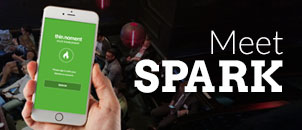Last week, Facebook held its fifth F8 Conference in San Francisco. In the past, Facebook has used F8 to introduce sweeping new features and technologies, such as the Like Button, Timeline and the Graph API. F8 has always been focused on the shiny new products that developers hope will help them become the next big success story in the Facebook ecosystem.
This year was different, however. During the opening keynote address, CEO Mark Zuckerberg announced that Facebook’s unofficial motto is no longer “Move Fast and Break Things,” but instead, the far less sexy “Move Fast with Stable Infra.” As the company moves into its second decade of existence, its goals are shifting with a focus on stability and perhaps more importantly, on user trust.
The other major theme of the conference was mobile. Facebook is trying to become a cross-platform layer that brings its social capabilities to iOS, Android, Windows Phone, and Web.

There are a few of the key features that Facebook announced that will be of greatest interest to marketers.
Audience Network
This is one of the biggest opportunities for marketers. Mobile apps will soon be able to utilize Facebook’s rich repository of user data to automatically serve up relevant ads for targeted app users. This will result in customized ads per user, which will in turn result in higher conversion. The user gets more relevant ads, the advertiser finds a much more relevant audience, and the app builder and Facebook will make a lot more money.
New Login
As part of Facebook’s initiative to gain user trust, it has unveiled a new app login screen that will make it considerably more transparent to users which permissions that an app is asking for. Additionally, users can actually choose which permissions to give to an app, and which to withhold. This new feature will probably cause developers the most consternation due to having to retrofit existing apps with this new functionality within Facebook’s generous one-year deadline. In the long-term, Facebook hopes that this additional transparency will make users more comfortable about trying new apps, which ultimately would be beneficial for developers and marketers.

Anonymous Login
Have you ever wanted to try a new app or site, but were wary of clicking that blue “Login with Facebook” button? That’s why Facebook has unveiled the new “Anonymous Login” button. If a user clicks on it, they will be able to log into a new site or try a new app without letting the app have access to any of their personal information. Facebook will know who the user is, but the app will have no access to that data. This might not be very useful for apps that try to leverage one’s social network, but for sites that just require some kind of easy login, the anonymous login feature will potentially prove to be quite useful. If users grow to trust the app, they can ultimately login normally.

Mobile Like Button
The original Like Button was first rolled out in 2009. Now, five years later, Facebook has finally announced that the Like Button is coming to mobile apps. This will provide all the same benefits to marketers as the standard Like Button, resulting in getting more content shared on the News Feed.
Better App Experiences
Facebook also announced several technologies to help mobile app developers provide a more seamless, less frustrating experience to their users. One of these is AppLinks, a new open standard that provides a way for developers to make it easy to deep-link into content within their iOS or Android apps. Another is “send to mobile,” which allows developers to send push notifications to users reminding them to download the app version of the site they’re looking at. Finally, Facebook is providing a messaging integration so that users of an app can easily share content from the app to their Facebook friends.

Media Offerings
To help compete with Twitter, Facebook is offering APIs to media outlets that will reveal what topics are trending, how frequently a hashtag has been used, and anonymous aggregated demographic data about which kinds of people are talking about a given topic.
Facebook made a number of other announcements at F8 as well. For instance, it announced that it will start supporting production APIs for at least two years, and that it will offer versioned APIs, meaning that changes to APIs won’t break existing apps. Additionally, Facebook has promised a 48-hour SLA for major platform bugs. These are all part of the “stable infra” that should make life easier on app developers.
So there isn’t one big brand new feature that the whole Facebook ecosystem is going to be turning its attention to this year. But that’s kind of the point: instead of moving fast and breaking things, Facebook has decided to work on its relationship with its developers and its users. By fostering a sense of stability and of trust, Facebook hopes that will be good not only for its users, but also ultimately for developers and marketers.








